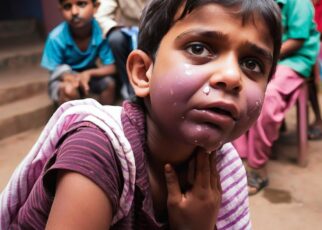In recent weeks, India has been grappling with a surge in mumps infections, with several states reporting a high number of cases. Kerala has been particularly affected, with nearly 2,500 cases reported, and other states like Maharashtra, Andhra Pradesh, Telangana, Tamil Nadu, and Rajasthan also experiencing outbreaks.
Mumps is caused by a virus and mainly affects children. While symptoms are usually mild, the virus is highly contagious, which is concerning for those with respiratory problems or weak immune systems. Symptoms often include swelling and pain in the salivary glands, leading to discomfort.
One of the challenges in controlling mumps is its long incubation period, similar to Covid-19. Many carriers may not show symptoms, making it difficult to contain the spread. Prevention measures, such as avoiding crowded places and wearing masks, are crucial.
It’s essential to prevent mumps, especially in vulnerable populations, as it can lead to serious complications like encephalitis or meningitis. Treatment mainly focuses on managing symptoms, and doctors recommend confirming the disease through blood tests.
Surprisingly, despite the availability of a vaccine, India is witnessing this outbreak. The MMR vaccine, given in three doses, is effective in preventing mumps. However, some cases may arise in unvaccinated individuals or those who haven’t completed all doses.
There’s speculation that the virus may have mutated, making it more infectious, but there’s no evidence to support this yet. As the situation unfolds, it’s crucial to stay informed and follow preventive measures to curb the spread of mumps in India.
Discover more from Thenewsdoor
Subscribe to get the latest posts sent to your email.






One thought on “What’s Behind India’s Recent Spike in Mumps Cases”